Video
Sign up for our newsletter
We summarize the week's scientific breakthroughs every Thursday.
-
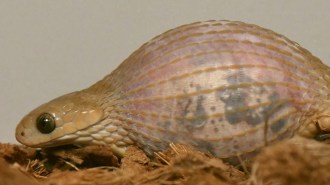 Animals
AnimalsA little snake’s big gulp may put all other snakes to shame
The humble Gans’ egg-eater can wrap its mouth around bigger prey than any other snake of its size.
-
 Earth
EarthWildfires aren’t going away. Here’s how smoke can affect your health
How does repeat exposure to wildfire smoke affect our health? Three experts weigh in on the massive air pollution fueled by Canada’s ongoing fires.
By Meghan Rosen -
 Physics
PhysicsElectrons are extremely round, a new measurement confirms
The near-perfect roundness deepens the mystery behind how the universe came to be filled with matter as opposed to antimatter.
-
 Astronomy
AstronomyWeird black holes may hold secrets of the early universe
Big black holes in little galaxies, rogue black holes and other behemoths could offer clues to cosmic evolution.
-
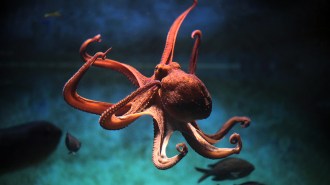 Animals
AnimalsOctopuses and squid are masters of RNA editing while leaving DNA intact
Modifications to RNA could explain the intelligence and flexibility of shell-less cephalopods.
-
 Neuroscience
NeuroscienceNeuroscientists decoded people’s thoughts using brain scans
The finding may lead to better communication aids for people who can’t communicate easily. It also raises privacy concerns.
-
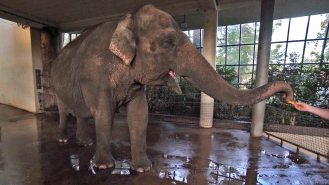 Animals
AnimalsThis elephant peels bananas, but only slightly ripe ones
Pang Pha, an Asian elephant at Zoo Berlin, probably picked up the skill by observing her zookeeper.
-
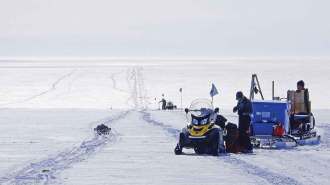 Earth
EarthA massive cavern beneath a West Antarctic glacier is teeming with life
A subglacial river has carved out the cavern beneath the Kamb Ice Stream, a West Antarctic glacier, and may be supplying nutrients necessary for life.
By Douglas Fox -
 Math
MathDense crowds of pedestrians shift into surprisingly orderly lines. Math explains why
New research into collective behavior adds to decades of study on the wisdom of crowds.
-
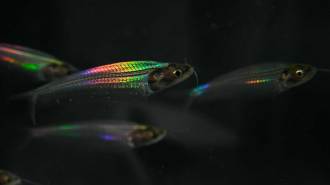 Animals
AnimalsThese transparent fish turn rainbow with white light. Now, we know why
Repeated structures in the ghost catfish’s muscles separate white light that passes through their bodies into different wavelengths.
-
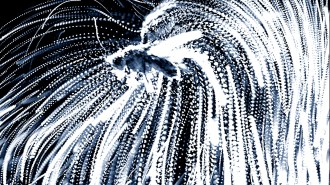 Physics
PhysicsStatic electricity helps parasitic nematodes glom onto victims
The small electric charge generated by a moving insect is enough to affect the trajectory of a parasitic nematode’s leap so it lands right on its host.
-
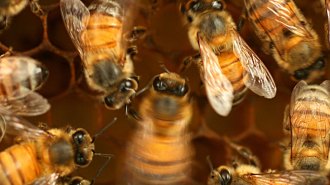 Life
LifeHoneybees waggle to communicate. But to do it well, they need dance lessons
Young honeybees can’t perfect waggling on their own after all. Without older sisters to practice with, youngsters fail to nail distances.
By Susan Milius